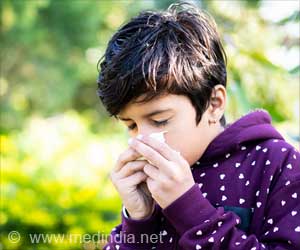It seems like everyone and their mothers have been under the weather lately. India seems to be witnessing a bad bout of influenza. Patients are reporting high-grade fever and persistent cough, which last for about two weeks.
According to reports from several cities, particularly the national capital, the flu is aggressive and long-lasting causing severe congestion.
The Reason Behind Flu Season Recently
Experts say that the culprit behind this horrible flu season is the H3N2 variant of the Influenza A virus. Recent data from the Indian Council of Medical Research (ICMR) suggests that H3N2 has been widely circulated for the last two to three months.
Symptoms to Look out For
With the way the virus behaves, it might be helpful to look out for certain symptoms like a high-grade fever for two-three days, body ache and headache, throat irritation, and a majorly persistent cough lasting for two weeks.
Hospitals in the capital have also reported a 90% patient surge in the past few weeks. Doctors observed that viral fever, cold and cough, and severe lung allergies like bronchitis are being reported majorly in patients visiting the hospital.
Climate may be Causing the Flu
The higher transmission of the flu virus is being attributed to the current climatic conditions. Coupled with the changing weather, pollution is also imperative in multiplying the number of patients impacted by viral infections.
Who is Vulnerable to this Virus
Doctors believe that the elderly, children, and pregnant women are the most prone to infection.
The rise in the number of patients complaining of viral infections and chest congestion reflects how seasonal change is gravely impacting the health conditions of people. Therefore, patients with asthma and those with severe lung infections have difficulty in breathing.
Advertisement
Patients with chronic conditions like asthma have to be extra careful during such weather transitions, as it can trigger severe respiratory issues and asthma attacks. During this time, even a minor respiratory problem must be reported to a pulmonologist or a physician to reduce the risk of it escalating.
How to Protect Yourself?
According to experts, everyone must remain extra cautious while venturing outside. The doctors also suggested getting vaccinated against the flu, practising hand sanitation, and maintaining hydration to fight the virus. Some even suggested serological surveillance.
Serological surveillance by the government through established systems in the public health system is critical for determining the virus’s serotype and endemicity.
Reference:
- Influenza (Avian and other zoonotic) – (https:www.who.int/news-room/fact-sheets/detail/influenza-(avian-and-other-zoonotic)
Source: Medindia



